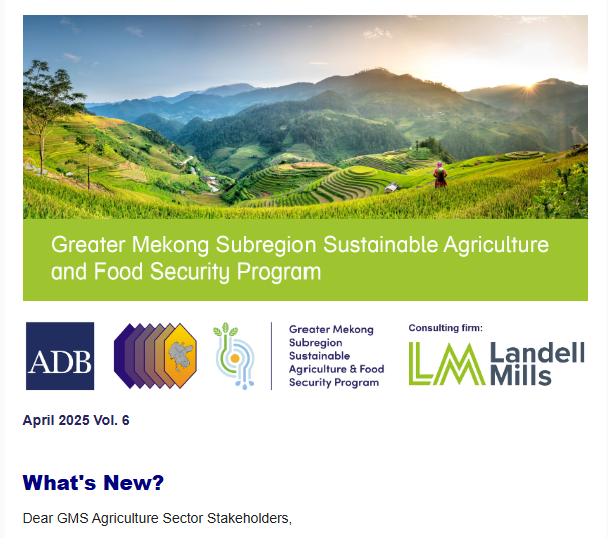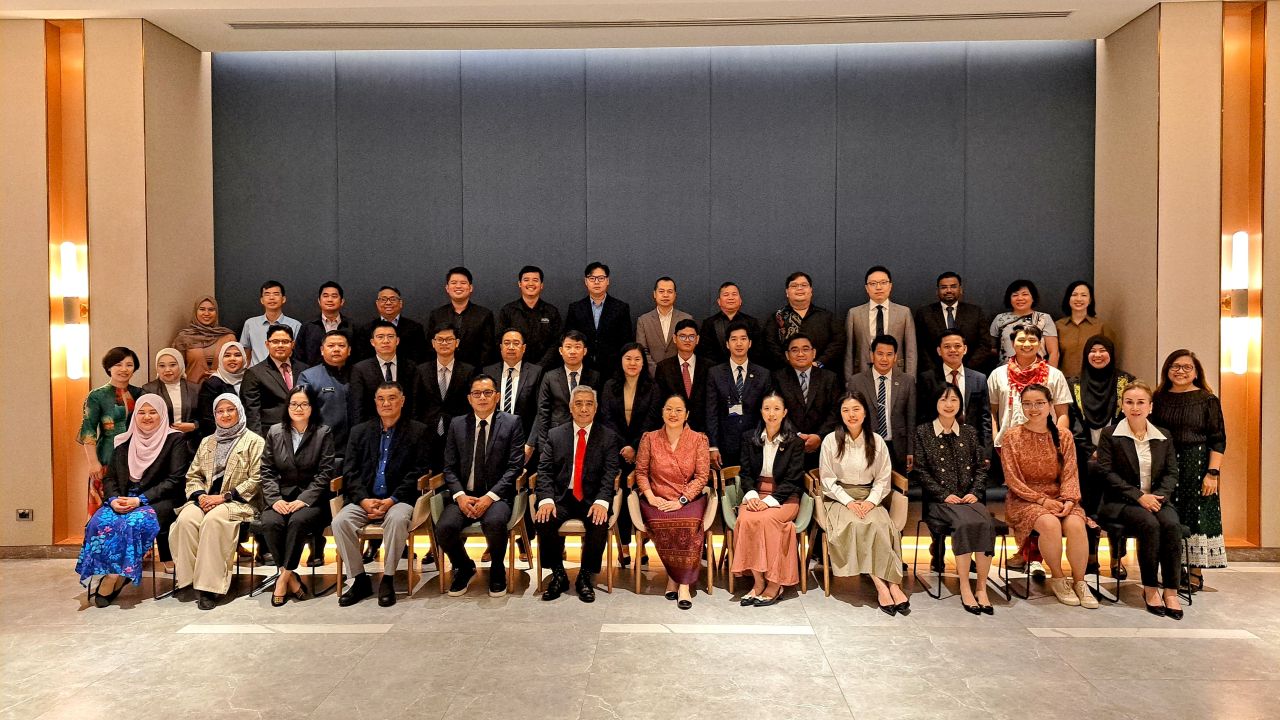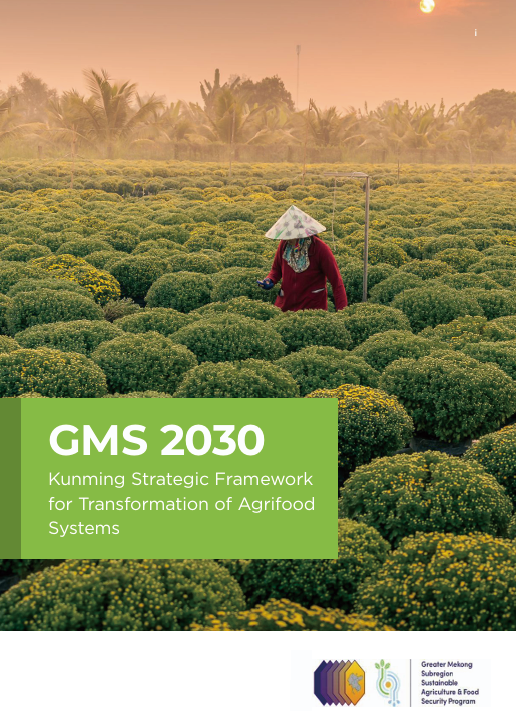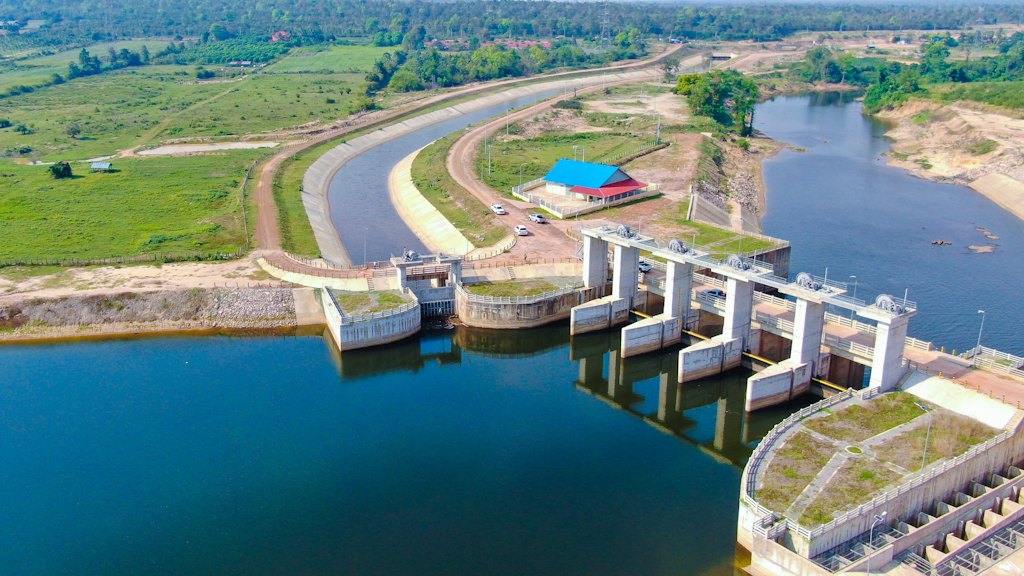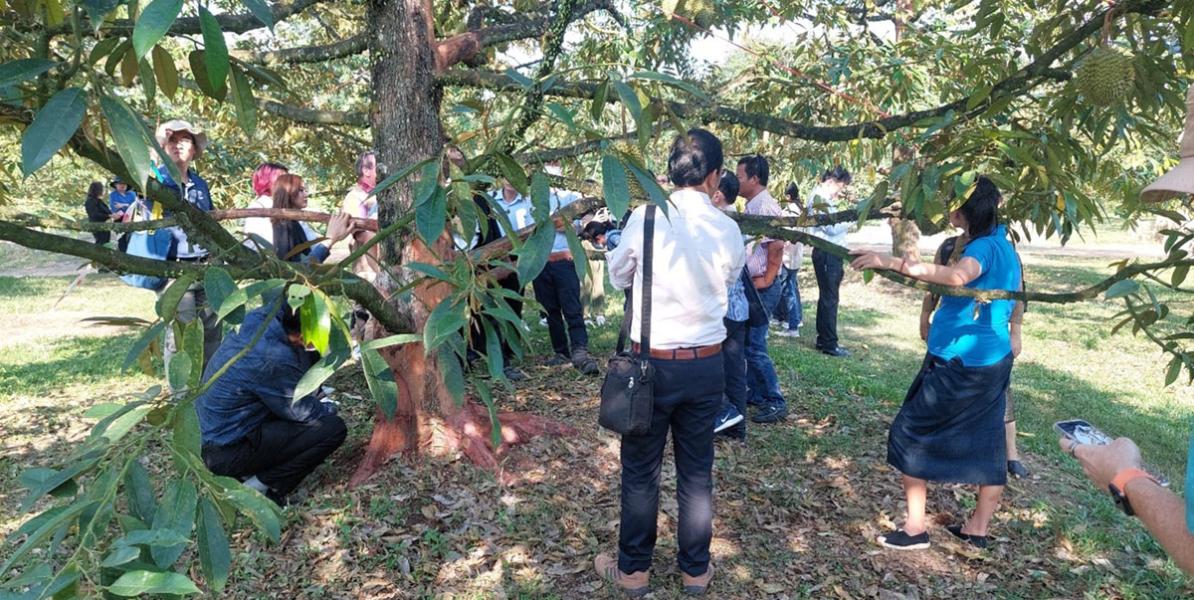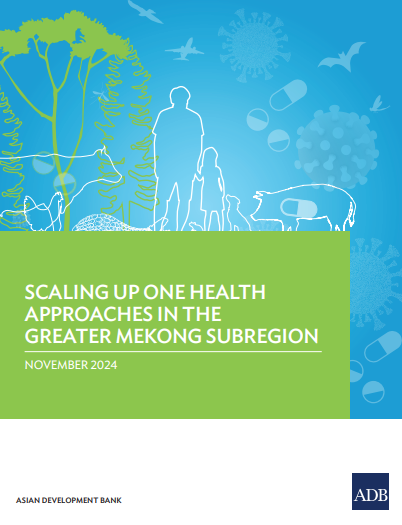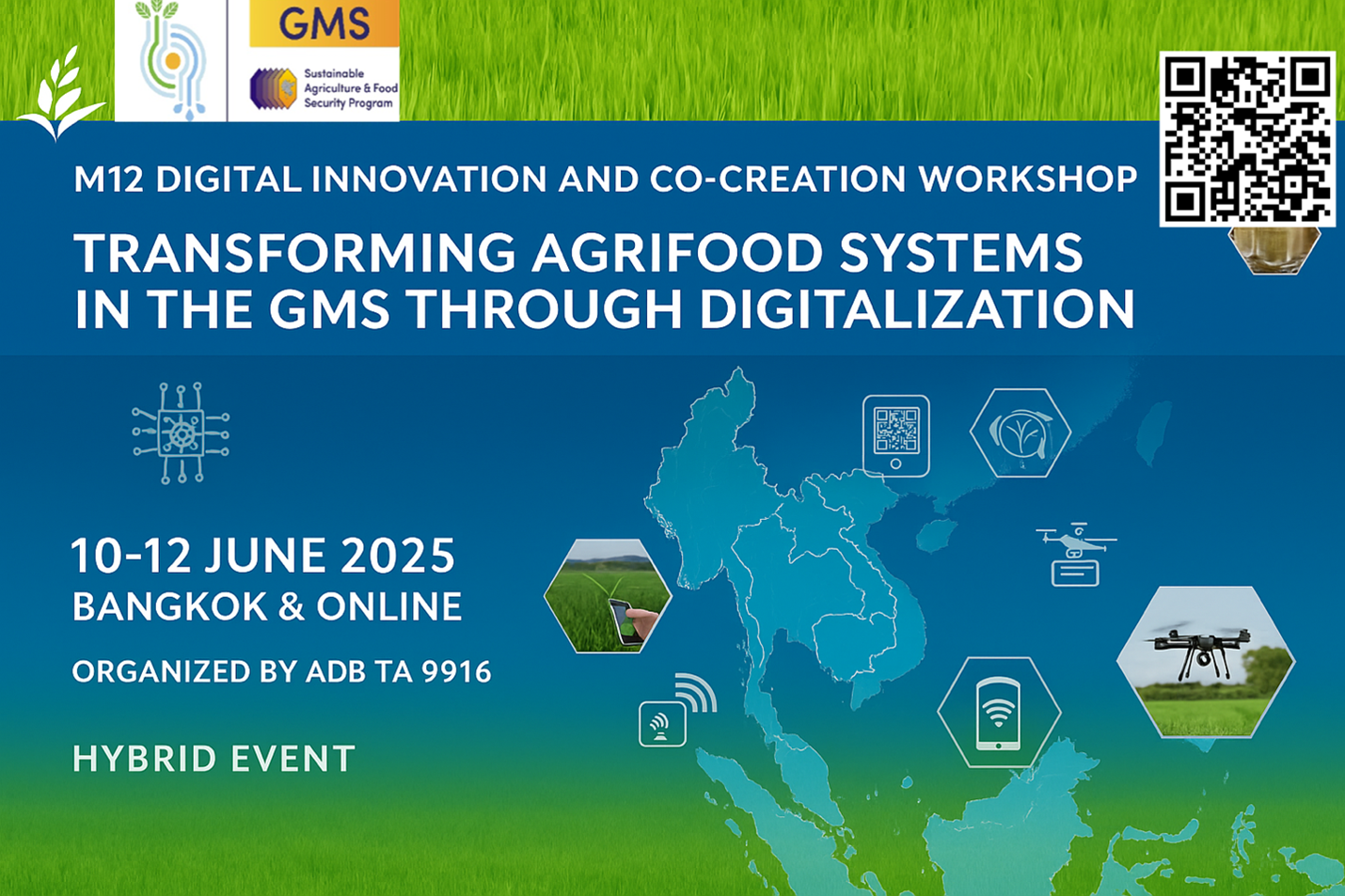
Digitalization as a Driver for Transforming Agri-food Systems in the GMS
10-12 June 2025
Baiyoke Sky Hotel, Bangkok | Hybrid (in-person and online via Zoom)
Policymakers, agribusinesses, tech innovators, and development partners from across the Greater Mekong Subregion (GMS) and beyond will gather to co-create and scale digital innovations for sustainable agrifood transformation.
Key topics:
• Cross-border digital traceability and certification
• Climate-smart agriculture and smart farming
• Digital finance and fintech for smallholders
• E-commerce and logistics innovations

